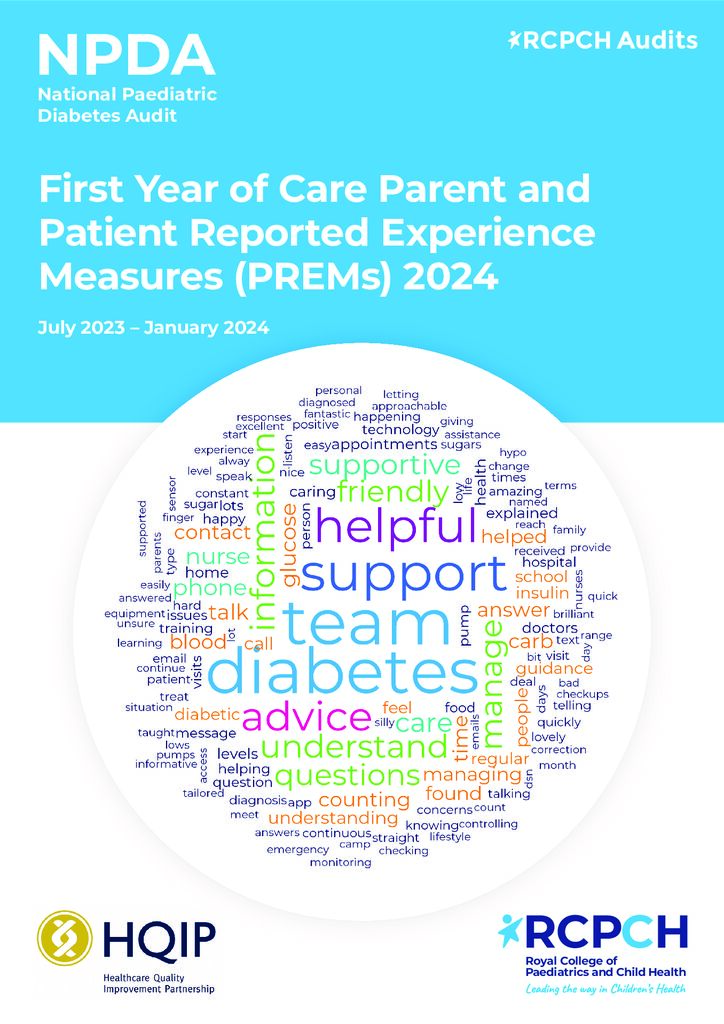Paediatric diabetes – PREMS report 2024 (NPDA)
The National Paediatric Diabetes Audit (NPDA) has published a Parent and Patient Reported Experience Measures (PREMs) report on the first year of care. Based on data from July 2023 to January 2024, it reported that children and young people, and their parents and carers, were overwhelmingly positive about their relationships with paediatric diabetes teams.
“It’s been an extremely stressful time since diagnosis, but we couldn’t have got through it without the Paeds Diabetic Team”
However, the report found that there are areas which need addressing including understanding of diabetic ketoacidosis (DKA), free access to technologies, and the availability of the whole paediatric diabetes multidisciplinary team (MDT) at clinic visits. It also uncovered the significant impact on parent/carer employment following diagnosis in a child, and a worrying influence on disrupted sleep for parents and carers.
The report contains the following six recommendations:
- Ensure families are educated about the importance of understanding the process of DKA, including the creation and signposting of resources to support families.
- Families should have 24-hour access to advice by a fully trained and experienced expert in managing paediatric diabetes emergencies.
- All newly diagnosed children and young people and their parents and carers should be provided with full multidisciplinary team support, including a diabetes psychologist.
- Diabetes technologies should be offered to all children and young people with diabetes in England and Wales in line with the NICE guidelines.
- Paediatric diabetes teams should be provided with the skills and training to be able to ask each family about any financial challenges they face, and to signpost to national and local sources of information and support.
- Paediatric Diabetes Units (PDUs) should be aware of the high levels of disrupted sleep following diagnosis of diabetes. Studies should be funded to understand the impact of a diabetes diagnosis on parent and carer wellbeing and the factors that may mitigate this impact.
Read the full report: You can see all key findings and read the report in full by clicking on the link below.
Stay up-to-date: For notifications of future reports from HQIP, sign up to our mailing list.
More information: For further information, go to the programme page on this website.


